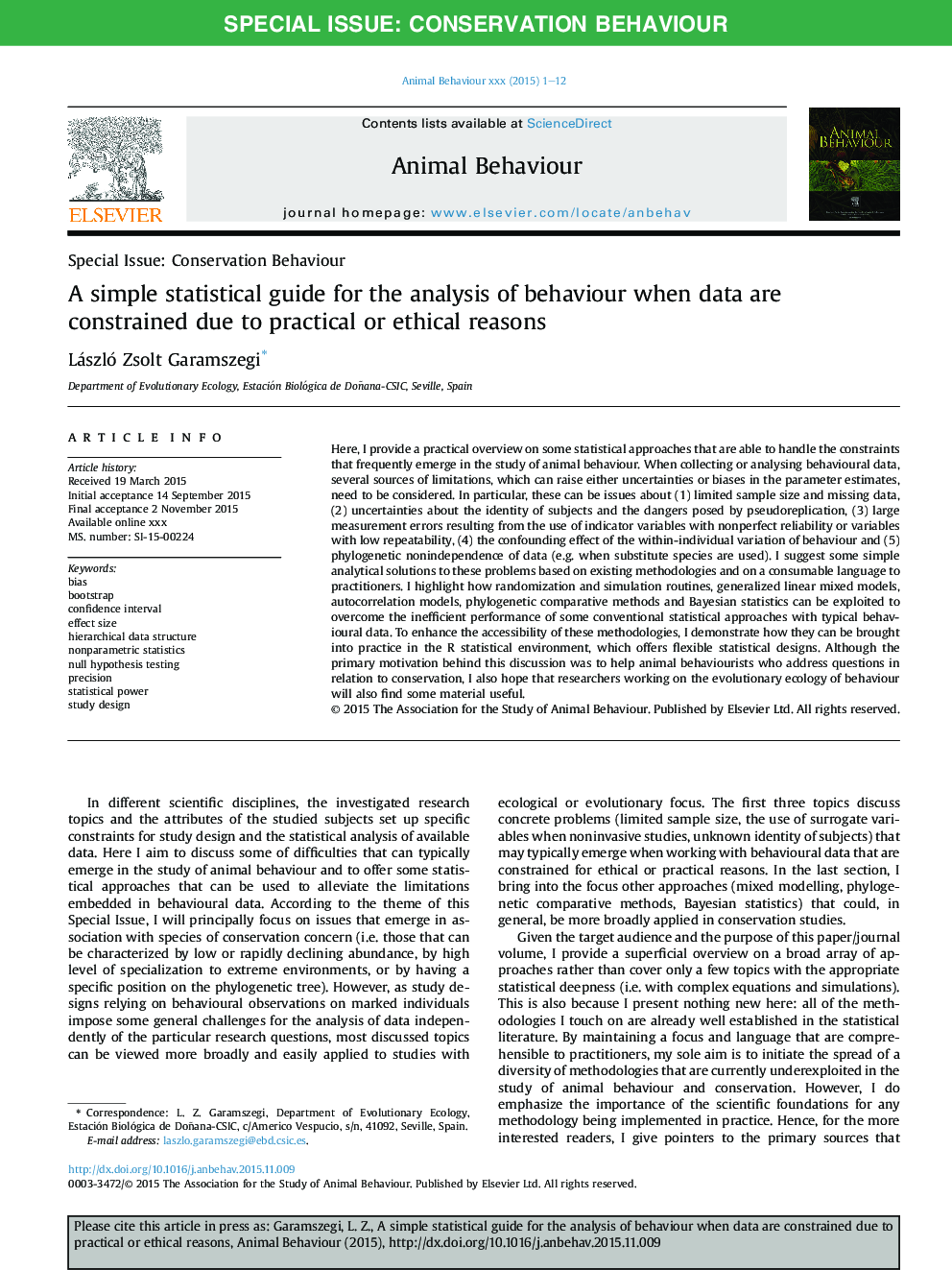| Article ID | Journal | Published Year | Pages | File Type |
|---|---|---|---|---|
| 8488926 | Animal Behaviour | 2016 | 12 Pages |
Abstract
Here, I provide a practical overview on some statistical approaches that are able to handle the constraints that frequently emerge in the study of animal behaviour. When collecting or analysing behavioural data, several sources of limitations, which can raise either uncertainties or biases in the parameter estimates, need to be considered. In particular, these can be issues about (1) limited sample size and missing data, (2) uncertainties about the identity of subjects and the dangers posed by pseudoreplication, (3) large measurement errors resulting from the use of indicator variables with nonperfect reliability or variables with low repeatability, (4) the confounding effect of the within-individual variation of behaviour and (5) phylogenetic nonindependence of data (e.g. when substitute species are used). I suggest some simple analytical solutions to these problems based on existing methodologies and on a consumable language to practitioners. I highlight how randomization and simulation routines, generalized linear mixed models, autocorrelation models, phylogenetic comparative methods and Bayesian statistics can be exploited to overcome the inefficient performance of some conventional statistical approaches with typical behavioural data. To enhance the accessibility of these methodologies, I demonstrate how they can be brought into practice in the R statistical environment, which offers flexible statistical designs. Although the primary motivation behind this discussion was to help animal behaviourists who address questions in relation to conservation, I also hope that researchers working on the evolutionary ecology of behaviour will also find some material useful.
Keywords
Related Topics
Life Sciences
Agricultural and Biological Sciences
Animal Science and Zoology
Authors
László Zsolt Garamszegi,
